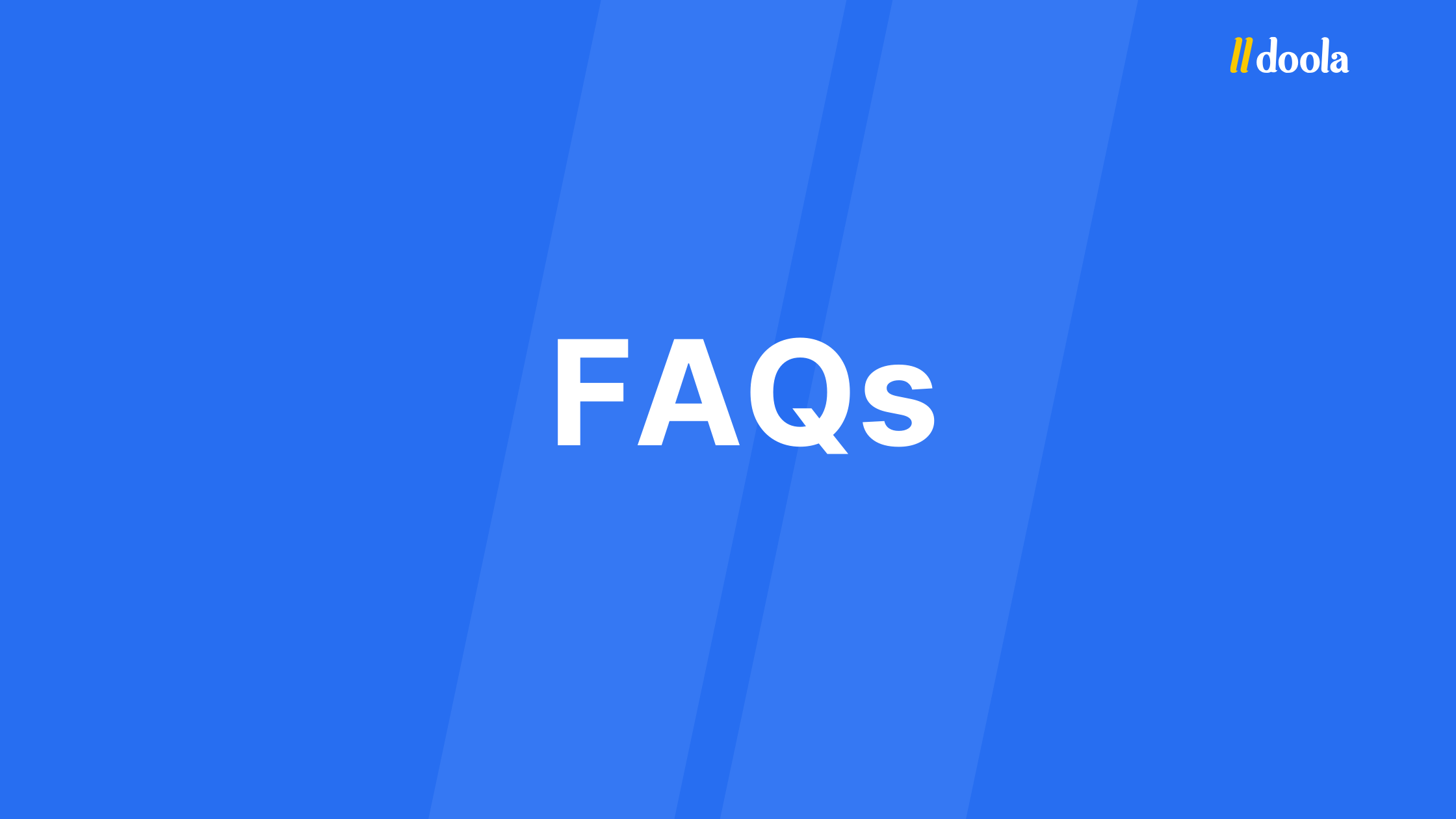Language:
Top 10 Reasons Your Business Needs an EIN in 2024

Beyond clocks and cubicles into the world of entrepreneurship. This is the reality you want to wake up to. Except you’re still weighing the risks and rewards.
So, we’ve got you covered.
Starting and growing a business is more than holding the reins. How it will unfold and grow depends on a few critical decisions. Having an Employer Identification Number (EIN) is one of them.
It is essential for various business operations and offers numerous benefits, such as streamlining processes and protecting your interests. Whether you’re just starting out or looking to expand, securing an EIN is a crucial step.
doola can help you navigate the complexities of business formation and EIN acquisition, ensuring you have the support you need every step of the way.
But first, let’s understand what EIN means and why you need it.
What Is an EIN?
An Employer Identification Number (EIN) is a unique nine-digit number assigned by the Internal Revenue Service (IRS) to businesses operating in the United States.
It acts as a unique identifier for your business, much like a Social Security number does for individuals.
The IRS uses it to identify your business for tax purposes and other official communications.
While not mandatory for all companies, an EIN benefits your business operations. This blog post will explore the top 10 reasons your business needs an EIN.
Before we dive right in, let’s clarify who needs an EIN.
Who Needs an EIN?
Here is a list of businesses that are usually required to have an EIN:
🔵 1. LLCs
🔵 2. Sole proprietorships
🔵 3. S corporations
🔵 4. Government agencies
🔵 5. NPOs
🔵 6. Trusts
🔵 7. Partnerships
🔵 8. Estates and other entities
Top 10 Reasons Your Business Needs an EIN

You’re getting familiar with EIN and about businesses that need one. You are about to learn the reasons you need an EIN in 2024.
Let’s get started.
1. Legal Business Entity and Partnerships
If you’re forming an LLC, corporation, or partnership, an EIN is essential for identifying your business.
As your business grows, you start looking out for contracting and partnerships. That’s when you realize:
a. Many government agencies require businesses to have an EIN to qualify for contracts.
b. Some business partners may require you to have an EIN before entering into an agreement.
Simply put, having an EIN would become non-negotiable.
2. Opening a Business Bank Account
Opening a business bank account is essential for separating your personal and business finances. Many banks require an EIN to open a business account.
This segregation of assets helps streamline your accounting processes, making it easier to track income and expenses and prepare for tax season.
A dedicated business account also enhances your professionalism and credibility with clients and vendors.
Note: A few years down the line, an EIN would be necessary when you are ready to scale your business and apply for a loan.
Obtaining an EIN before filling out loan applications will help secure the funds for your business growth.
3. Business Credit and Financing Opportunities
You need an EIN for building business credit.
Business credit is separate from personal credit and is crucial for securing loans, credit lines, and favorable terms from suppliers.
With an EIN, you can establish a credit profile for your business, making it easier to qualify for financing and credit cards.
4. Credibility with Clients and Vendors
Using an EIN instead of your personal Social Security number when dealing with clients and vendors adds a layer of professionalism to your business.
It shows that your business is established and legitimate, which can enhance your reputation and build trust with partners.
5. Recruiting Employees
Hiring employees is a coveted milestone for any business, and this turning point arrives sooner than you imagine.
If you plan to onboard employees, obtaining an EIN is a must. The IRS requires businesses to have an EIN to report employment taxes.
Without an EIN, you won’t be able to set up a payroll system, withhold federal taxes, or file employment tax returns.
Your EIN, essentially, is the first step in ensuring you meet all legal requirements.
Prioritize it.
6. Business Tax Filing and Tax Compliance
An EIN simplifies the process of filing federal and state business taxes.
Whether you’re operating as a sole proprietorship, partnership, corporation, or LLC, an EIN is necessary for submitting tax returns.
It helps the IRS track your business’s tax obligations and ensures you comply with all tax laws.
Additionally, having an EIN allows you to apply for certain tax credits and deductions, potentially lowering your overall tax liability.
Even if you don’t have employees, you might need an EIN to file specific business tax returns, such as those for excise taxes.
7. Safeguarding Personal Identity
Using an EIN instead of your Social Security Number (SSN) helps protect your personal information from potential fraud, such as identity theft.
Sharing your SSN less frequently helps protect your personal information from being misused.
An EIN provides an extra layer of security when interacting with clients, vendors, and financial institutions.
8. Legal Protection and Separation
Operating a business without an EIN can blur the lines between personal and business finances, leading to potential legal issues.
An EIN helps create a legal separation between you and your business, protecting your personal assets from business liabilities.
This is crucial for LLCs and corporations, where legal distinction is crucial.
Ensure your business is legally protected by obtaining an EIN with doola.
9. Opening Retirement Accounts:
Planning for retirement is crucial, even as a business owner.
An EIN opens doors to establishing retirement plans like Keogh or Solo 401(k) accounts, offering potential tax advantages over traditional IRAs (Individual Retirement Accounts).
Secure an EIN if you plan to set up a retirement plan for yourself or your employees.
10. Estate Planning and Succession
An EIN is necessary for estate planning and business succession purposes.
If you plan to pass your business to a family member or sell it, having an EIN ensures a smooth transition and helps manage estate and inheritance taxes.
It also simplifies the process of transferring ownership and assets.
How to Apply for an EIN
The IRS lets you apply for an EIN for free on its website.
The application process is simple. In most cases, you can apply online and receive your EIN immediately.
While online is the fastest, you can apply by mail or fax using Form SS-4. The application form requires the following details:
1. Your legal business name
2. Official business address
3. Name and Social Security number of the responsible party
The “responsible party” is the individual responsible for the company. He/she will also sign the application.
The form will also ask about the type of business and any plans to hire employees. Once submitted, the IRS will assign your business a unique EIN.
doola can help if you find the process overwhelming.
Things to remember when filling out the application:
Determine eligibility: The IRS has a list of criteria you must meet before applying for an EIN.
Understand the application: You must complete the application in one session, with no more than 15 minutes of inactivity.
Submit your application: Upon completion, download, save, and print your EIN letter for your records.
EIN for Nonprofit Organizations (NPOs)
The EIN norms are slightly different for NPOs. For nonprofits, the IRS needs you to legally form your organization with your state first and then apply for an EIN.
Upon receiving an EIN, you must follow the standard IRS rules for annual tax filings.
While applying for an EIN, specify whether your NPO is a church-associated organization or any other type of nonprofit.
The “responsible party”, in this case, is usually the company’s principal officer.
Note: Forming an NPO and receiving an EIN does not automatically make you eligible for tax exemption. You must meet additional criteria (set by the IRS) for a tax-exempt status.
When Would You NOT Need an EIN?

While an EIN is essential for many businesses, there are instances where it’s not required. Here are some common scenarios:
1. Changing Your Business Name
If you simply change the name of your business, you do not need a new EIN.
You can update the name with the IRS using the required forms without obtaining a new number.
2. Bankruptcy Declaration
Declaring bankruptcy does not require a new EIN for partnerships or corporations.
Your existing EIN remains valid throughout the bankruptcy stage.
3. Being Taxed as an S Corporation
If you choose to be taxed as an S corporation by filing Form 2553, you do not need a new EIN.
Your current EIN remains unchanged despite the change in tax status.
4. Change in Tax Classification
Changing how your business is taxed (e.g., from a partnership to a corporation) on Form 8832 does not require a new EIN.
The IRS will adjust your tax classification without issuing a new number.
5. New Business Location
Moving your business to a new location does not require a new EIN.
Instead, you should update your address with the IRS using Form 8822-B.
By understanding these scenarios, you can avoid the unnecessary steps of applying for a new EIN when your business undergoes certain changes.
Secure Your Business’s Future with an EIN – Let’s doola it
An EIN is your business’s passport to success. It’s more than just a number; it’s a strategic tool that unlocks growth, protects your assets, and simplifies your operations.
By securing an EIN, you’re positioning your business for growth and stability.
Ready to take the next step?
Let doola help you obtain your EIN and provide comprehensive support for your business’s success.
Explore doola’s EIN services and schedule a consultation today.
FAQs

How do I find my EIN?
Look for your EIN on any IRS notices or your previous tax returns.
Else, you can contact the IRS Business and Specialty Tax Line at 800-829-4933.
How long will it take to get my EIN?
If you apply online, you’ll usually get your EIN instantly. Mail or fax applications can take a few days.
Is an EIN the same as a Social Security number?
No, an EIN is different from a Social Security number.
An EIN is used to identify a business entity, while a Social Security number tracks an individual’s earnings and work history.
Is an EIN the same as a tax ID number?
While both are used for tax purposes, an EIN identifies businesses, while other tax ID numbers (like SSNs) are for individuals.
What happens if I lose my EIN?
If you lose your EIN, you can retrieve it by contacting the IRS.
You can also find it on the notice sent by the IRS when it was issued or by checking with the bank where you may have submitted it.
Can I open a business bank account without an EIN?
You might be able to open a business bank account without an EIN if you’re a sole proprietor or single-member LLC.
However, having an EIN offers more flexibility and is often preferred by banks.
Is it okay to use my SSN instead of an EIN?
While you can use your Social Security number for tax purposes, using an EIN provides better protection against identity theft.
With an EIN, you won’t need to share your Social Security number with clients or vendors.
How much does it cost to get an EIN?
Obtaining an EIN from the IRS is free. You can apply online, by mail, fax, or phone.
doola also offers an EIN registration service for a fee.
Is it difficult to apply for an EIN?
Applying for an EIN is simple. You can complete the application (Form SS-4) online and receive your EIN immediately.
doola’s EIN services ensure your application is accurate and submitted correctly.
What are the responsibilities of employers related to EIN?
Employers with an EIN must file tax returns, meet tax payment deadlines, and handle FICA, FUTA, payroll, and income taxes.
They must also verify employees’ identity and eligibility to work in the US, retaining a copy of Form I-9 for each employee.





